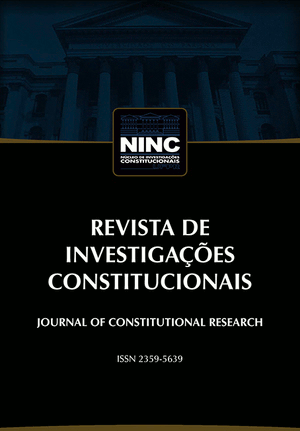Abstract
The present study aims at analyzing the foundations used by the Federal Supreme Court (STF) in judging the claim of non-compliance with a fundamental percept 738/DF (ADPF 738/DF) to decide on the impossibility of recognizing quotas for black applications in politics for equivalence to the gender quotas in politics. Considering that in the ADPF 738/DF the STF recognized the main responsibility of the National Congress for stipulating the affirmative actions directed to the promotion of a higher inclusion of the black population in politics, and, given that this majority that forms the current scenario of the National Congress - formed, mainly, by non-black representatives (currently, the black population represents 22,22% of the Federal Senate and 24,16% of the House of the Representatives) - has not demonstrated commitment in articulating affirmative actions in this sense, the study intends to highlight the constitutional jurisdiction acting on behalf of correcting the democratic representation deficits in an inclusive and egalitarian perspective, precisely by the fact of remaining exclusively to the burden of the politics majority the responsibility for the articulations of affirmative actions to stimulate applications of the black population for political positions. To do so, the deductive approach method and the analytical procedure method will be used. From the analysis, it was concluded that, in the ADPF 738/DF, the inexistence of a legal provision defining the affirmative action of reserve of positions for black people applications in the political parties was the main foundation for recognizing the impossibility of equivalence to the gender quotas in politics, restated in the decision of the ADI 5617/DF. Concerning the protection of politically sub-represented minorities, it was observed that not only the counter-majoritarian acting functions as a mechanism of minorities protection by means of the constitutional jurisdiction acting, but also the articulation of strategic litigations may act as an important actor of meaningful social changes, claiming that the constitutional jurisdiction utter structural decisions directed to meet the democratic deficits and may correct the situations of structural inequality.
Keywords:
quotas on politics; constitutional jurisdiction; counter-majoritarian power; strategic litigations; political sub-representation
